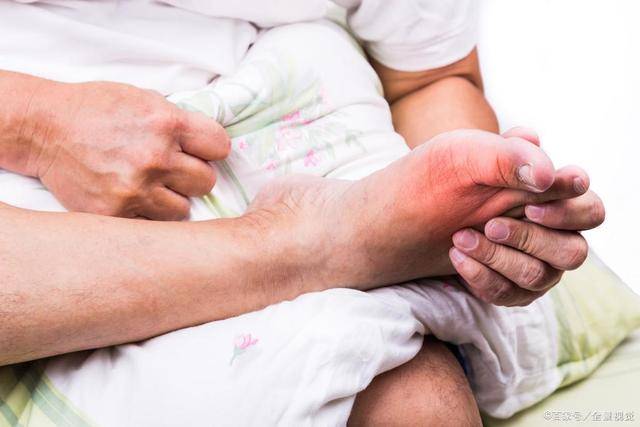Gout, excruciatingly painful during an attack, some even describe it as “unbearably painful.”
Gout is a metabolic disease characterized by elevated uric acid levels due to abnormal purine metabolism.
Clinically, the body’s condition for gout is assessed through blood, urine, enzyme activity, and other tests.
After a gout diagnosis, it’s essential to regulate your diet promptly to prevent complications, especially eliminating these 6 types of foods.
After a gout diagnosis, remove these 6 types of foods from your table
Seafood. Seafood is high in purines, such as sardines, sea cucumbers, squid, etc. After a gout diagnosis, remove seafood from your diet promptly.
Even if not diagnosed with gout, individuals with a family history of gout should also control their seafood intake to avoid a spike in uric acid levels, increasing the risk of developing gout.
Offal. Animal offal is considered “waste.” However, many people enjoy eating it, like pig liver, pig intestines, etc., which contain high purine substances.
On average, every 100 grams of animal offal contains 240-530 milligrams of purines. Therefore, after a gout diagnosis, it’s advised to control your consumption of animal offal.
Fruit juices. Fruit juices contain a large amount of fructose. Though fructose does not contain purines, it accelerates the breakdown of purine nucleotides in the body, leading to continuous uric acid increase. To prevent gout, limit fruit juice consumption.
Broths. Thick broths like pork bone soup, beef bone soup, etc., with a milky white liquid emulsified from fat, have a high-fat content that can cause metabolic abnormalities.
Purines are soluble in water, and when foods rich in purines enter broth, the purine content gradually rises, excessive intake leading to a spike in uric acid, triggering acute gout attacks.
Alcohol. After a gout diagnosis, strictly avoid alcohol. Regardless of the type, all alcoholic beverages contain a certain amount of alcohol, which stimulates increased purines in the body, leading to higher uric acid production. This can likely worsen gout symptoms.
Alcohol promotes purine absorption, consuming it with other purine-rich foods can result in a surge in uric acid, triggering gout and increasing kidney stress.
Beef and lamb. Beef and lamb are high-purine foods, rich in hard-to-digest proteins, making hotpot a big taboo for gout patients.
Even without beef and lamb, eating vegetables while having hotpot may gradually raise uric acid levels since soaking vegetables in the same broth as beef and lamb can lead to uric acid adhering to them.
Control uric acid, follow the “2 More, 2 Less” rule
Drink more water. Uric acid can dissolve in urine, so drinking more water promotes urine excretion, aiding in expelling uric acid from the body.
Drinking more water also prevents urinary stones and infections. For gout patients, daily water intake should be at least 2000 milliliters to help lower uric acid concentration and prevent acute gout attacks.
Exercise more. Adequate exercise helps high uric acid individuals by boosting blood circulation, aiding in expelling excess uric acid to prevent gout.
During exercise, increased urine excretion helps smoothly expel uric acid outside the body, providing certain assistance in preventing gout and maintaining overall health. It’s advisable not to exercise during a gout attack.
Avoid staying up late. Metabolism slows down at night; uric acid may accumulate, potentially triggering a gout attack, detrimental to health.
Long-term midnight habits can lower immunity and harm kidneys, impairing uric acid excretion. Hence, gout patients must avoid staying up late and strive for early sleeping and waking routines.
Avoid holding urine. Drinking more water aids in urine flow, stabilizing uric acid levels to prevent spikes.
If you drink more water and feel the urge to use the restroom, yet choose to hold it, uric acid may not be promptly expelled, burdening the kidneys and possibly raising uric acid levels, leading to gradual spikes in the body. Hence, more water intake should correlate with more urinary excretion to expel toxins and garbage, reducing uric acid levels, preventing acute gout attacks, and maintaining overall health.
To stabilize uric acid levels in the body, cultivating good lifestyle and dietary habits is paramount. This helps reduce kidney burden, maintain a stable internal environment, and can aid in alleviating acute arthritis.


